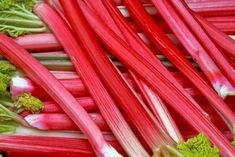
Growers of forced rhubarb in the renowned Wakefield Triangle are warning that there could be a gap in supply next month due to inclement weather.
“Some growers have not filled their sheds yet and some of the ground is just too wet for them to get the roots out now,” said Janet Oldroyd Hulme of E Oldroyd & Sons. “It means there won’t be as much availability in February as we would expect.”
Rhubarb roots grow outdoors for two years before being brought into dimly-lit sheds for forcing. But a lack of sufficient frosts means that some producers still had their roots in fields when heavy rainfall struck this week.
At E Oldroyd & Sons, harvesting of Timperley Early started just after New Year in line with recent averages. This week, harvesting switched into the next variety to come on stream, Stockridge Harbinger, and Reeds Early Superb will come on stream next week.
“We are expecting slightly below average yields this year,” said Oldroyd Hulme. “Prices are about the same as last year, but then there was a huge shortage and instead of a bit of a glut in February, there was a shortage and a big gap between the early and the maincrop. We are not expecting that this season.”
Over the past 10 years, Oldroyd Hulme admits that climate change has altered the season for forced rhubarb. “Climate change is affecting yields,” she said. “Rhubarb is a native of Siberia and it needs long periods of cold. We used to be able to harvest in December, but not with the warm temperatures we have been having lately.”
Oldroyd Hulme is leading growers in the Wakefield Triangle in their quest to have their product recognised with Protected Denomination of Origin status by the EU. A decision is expected within the next 12 months.



